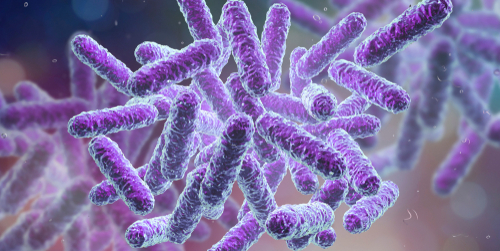BioVersys obtains new funds for its fight against drug-resistant bacteria

CARB-X funds BioVersys to support the development of first-in-class anti-virulence small molecule drugs designed to disarm bacteria, opening the door for a paradigm shift in the treatment of drug resistant bacterial infections.
CARB-X is awarding BioVersys AG up to US $3.94 million in non-dilutive funding, with the possibility of up to $4.98 million more if certain project milestones are met to develop new drugs designed to disarm Staphylococcus aureus bacteria of virulence factors that can cause serious skin infections and can spread to muscles, lungs and other body parts. The molecules have the potential to be used as a stand-alone therapy and in combination with existing antibiotics.
CARB-X is investing up to $500 million in antibacterial R&D between 2016-2021, exclusively targeting drug-resistant bacteria identified by the WHO and CDC as posing the greatest health threats. The initiative is led by Boston University and funding is provided by a number of partners including the Wellcome Trust, Germany’s Federal Ministry of Education and Research (BMBF) and the Bill & Melinda Gates Foundation.
Marc Gitzinger, CEO and co-founder of BioVersys: “We are delighted that CARB-X recognizes the immense potential of BioVersys’ anti-virulence program (BV200) through this funding award. The diversity in the challenge of antimicrobial resistance (AMR) diseases, requires us to broaden our approach beyond classical antibiotics, and further R&D investment in novel paradigm shifting approaches such as anti-virulence is vitally important. BioVersys is committed to continue its development of novel targeted antimicrobials and deliver new treatment options to AMR patients worldwide.”
The BV200 series of molecules has been developed using the company’s TRIC technology (Transcriptional Regulator Inhibitory Compounds). These are not direct acting antibiotics, but rather a new class of molecules, capable of disarming bacteria of their harmful virulence factors. Molecules of the BV200 class inhibit the transcriptional regulator AgrA which controls the production of harmful virulence factors including -toxin, phenol-soluble-modulin (PSM) and Panton-Valentine leucocidin (PVL) toxins that are directly linked to the severity of S. aureus-mediated skin and skin structure infections( SSSIs) and pneumonia. By preventing the expression of toxins, the molecules have the potential to reduce tissue damage, disease progression and, consequently, reduce infection severity and mortality rates in patients. The BV200 series will initially be developed for skin and skin structure infections (SSSI) and pneumonia caused by S. aureus, including Methicillin-resistant S. aureus (MRSA).
MRSA is identified by the World Health Organization (WHO) as Priority drug-resistant bacteria, and as a Serious Threat to public health by the Centers for Disease Control and Prevention (CDC).
“Drug-resistant bacteria represent one of the greatest threats to public health globally. New approaches, like the BioVersys’ project, are urgently needed to help save lives and to curb the spread of drug-resistant bacteria,” said Kevin Outterson, Executive Director of CARB-X, which is based at the Boston University School of Law. “This project is in early stages of development but if successful and approved for use in patients, it would represent tremendous progress in the fight against drug resistance, by offering an alternative therapy to traditional antibiotics and also restoring the effectiveness of existing antibiotics.”
Supporting antibacterial innovation
CARB-X is investing up to $500 million in antibacterial R&D between 2016-2021, exclusively targeting drug-resistant bacteria identified by the WHO and CDC as posing the greatest health threats. The goal is to support projects through the early phases of development, through Phase 1 for therapeutics, so that they will attract additional private or public support for further clinical development and approval for use in patients.
CARB-X is led by Boston University and funding is provided by the Biomedical Advanced Research and Development Authority (BARDA), the Wellcome Trust, Germany’s Federal Ministry of Education and Research (BMBF), the UK Department of Health and Social Care’s Global Antimicrobial Resistance Innovation Fund (GAMRIF), the Bill & Melinda Gates Foundation, and with in-kind support from National Institute of Allergy and Infectious Diseases (NIAID).
(Press release)






















































Please login or sign up to comment.
Commenting guidelines